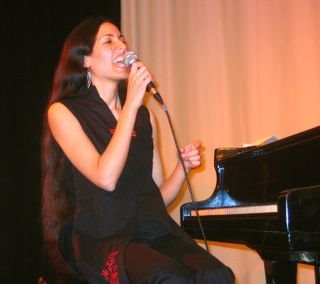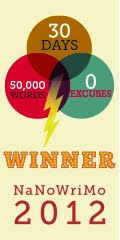
Hisham Mattar

Londoners wanting a taste of the literature being written by Arabs living in exile had their chance last Wednesday night when three London-based writers - Ghalya al-Said from Oman, the Libyan Hisham Matar and Ghalia Kabbani of Syria - presented their work at the Irish Centre in Hammersmith, West London.
They also had the chance to taste Arabic food from an enticing buffet of dishes such as ful, homous, kibbe and tabboule freshly prepared by the Iraqi novelist Samuel Shimon (author of "An Iraqi in Paris").
Shimon is co-founder of Banipal, the London-based magazine of modern Arab literature, which presented the evening. The event was part of the Westwords Live literature festival being held in West London by eight boroughs during March and April. It was introduced by Banipal's Publisher and Editor Margaret Obank, and chaired by Christina Phillips, an Arabic scholar who sometimes translates for Banipal.
Ghalya al-Said read in Arabic from her recently-published first novel "Days of Heaven". Obank, who read the English translation, described "Days of Heaven" as a novel that is set in London in the 1970s among the immigrant community. "The hero, Ghassan, is a fantasist Don Juan who left his homeland to come to try and find his fortune as a major con man and desperado, and all the adventures he has are recounted." Al-Said writes with acute observation and humour. Ghassan finds that London, unlike cities elsewhere, helps him to keep his many secrets.
Hisham Matar read from his first novel "In The Country of Men". The book trade regards this novel as one of the hottest books due to be published this summer. It was sold in auctions in Europe and the US within a week of being submitted to publishers. It will be published in July by Viking, an imprint of Penguin, and then in 13 other languages. A translation into Arabic is also under way.
Matar's sensuous, dreamy yet precise prose captures the atmosphere of Tripoli in the relentlessly scorching summer of 1979 as seen through the eyes of the nine-year old narrator. The sensitive boy's relationship with his troubled mother, and the mystery over his absent father glimpsed in the street, make a compelling start to the novel.
Christina Phillips read Ghalia Kabbani's story "A Cup of Tea With Mrs Robinson", translated into English by Ali Azeriah. The narrator of this thought-provoking story is a political refugee who describes returning home after a woman has assaulted her in the street injuring her face.
The husband's reaction to his wife's trauma falls far short of what she had hoped for. He is more concerned with discussing politics with his friends than with her welfare. With skill Kabbani takes us inside the realities of life for political refugees, and reveals the stresses political exile places on marriages. It is the English baby-sitter, formerly dismissed as a Mrs Thatcher type with her hairdo and her determination, who gives the narrator the spontaneous comfort she needs.
Susannah Tarbush
Saudi Gazette March 28 2006




